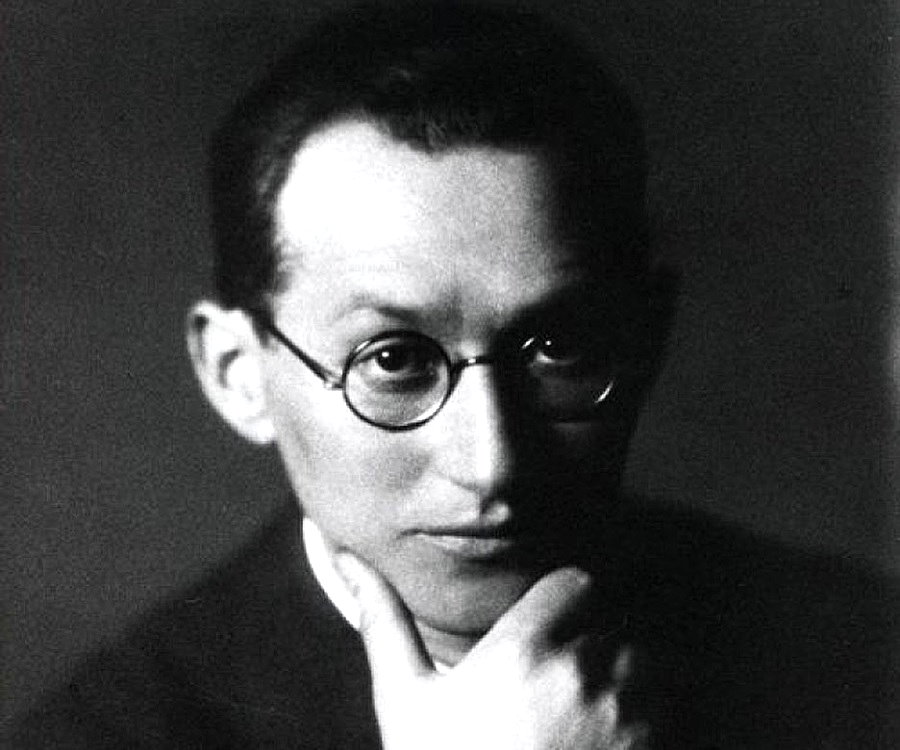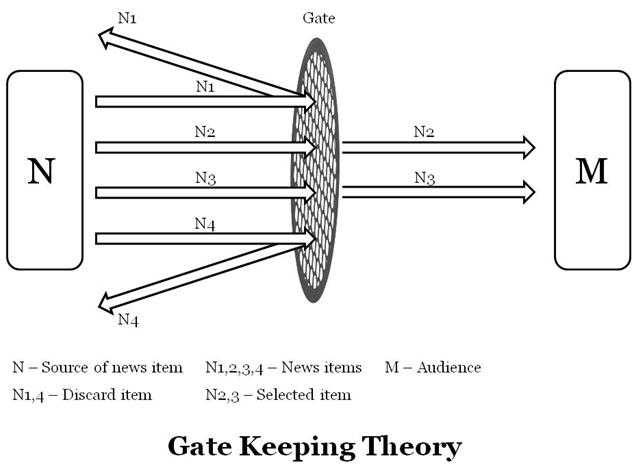Blog #8: EOTO Terms and Concepts
For my second EOTO presentation, I chose to do mine on the Gatekeeping Theory. The Gatekeeping Theory was coined by German social psychologist Kurt Lewin in 1943. Lewin developed the theory in the field of psychology called psychological "field" and "life space", in order to understand the human behavior and its important consideration of total life space. At first, Gatekeeping was more commonly used in the psychology field, but now it is mainly used in communications.

The concept of the Gatekeeping Theory is a pretty simple one to follow. The Gatekeeper is the person who decide what information they should pass on to a group or individual, or sometimes more importantly what information not to pass on. Essentially, the Gatekeeper is the decision maker of the group, or the leader of a team. Through this process, the Gatekeeper gets rid of unwanted or controversial information. By doing this, they lead the group down the right path towards useful information.
Gatekeepers can be used in a number of different occupations, or group work done at school. An example of the Gatekeeper Theory is The Chief Editor at a local news station. One day, the Chief Editor receives news stories about four stories: An MLB play off game, United Nations Discussions, a Texas Bull Fighting event, and an international terror issue. The Chief Editor then looks into all of these stories, and decides which one will benefit their news station the best. He must consider what each topic of the stories will do to the reputation of his news station. If he chooses a controversial topic, then the news station might receive backlash over that. If they play it safe, then people might look to other news stations to hear about more exciting stories. Ultimately, the Chief Editor decides to choose the story about the United Nations discussions and the international terror issue. By talking about these stories on the air, they will be covering a topic that is relevant and important in today's news, but will also be covered on other news stations, so people won't be going to other news stations for information on different topics. While this theory might not affect someone who can afford to do their own research and look up stories that they are interested in, a person that does not have the money or resources to independently research different news stories that are going on the world may be at a disadvantage. They will rely on what the Gatekeeper thinks is important news, instead of hearing all kinds of different news and deciding for themselves.

Overall, this social theory was an interesting one to research. I initially picked to research this because I have heard the term gatekeeping used as a negative in today's world, so I was interested to know what the original term meant. Today, Gatekeeping means that a person is keeping information from another. Like if I asked my friend where she got her shirt, and she told me that she wouldn't say because she doesn't want me to have it too, she would be considered a Gatekeeper. So what originally was a positive term, has turned into a negative over the years since it was first founded by Lewin.
Comments
Post a Comment